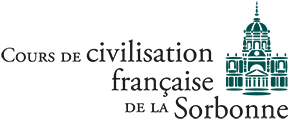What is an idiomatic expression?
An idiomatic expression is made up of several words which, together, have figurative or colorful meaning to describe a given situation. These groups of words are specific to a given language – they could consist in grammatical constructions or metaphors – and therefore cannot be literally translated into another language.
Ex: The French idiomatic expression : « il pleut des cordes » is translated in English to « it’s raining cats and dogs ».
Poser un lapin
If this expression is well known to French speakers around the world, it is not always the case among foreigners, although it can be particularly useful for professionals or students. The expression “poser un lapin” literally translates to “put a rabbit” and means “to stand someone up”.
This particular expression transcends generations and remains frequently used nowadays.
Il ne faut pas pousser mémé dans les orties
This expression is still frequently used by young people and is very surprising to non-French speaking foreigners on their first trip to France. This idiomatic expression can be translated to “Don’t push Granny into the nettles!” which simply means “don’t push it”. The initial expression goes back to the early 20th when people just used to say “ il ne faut pas pousser, ” let’s not push it” (or simply “don’t push it”). The rest of the sentence was therefore added later on to give the expression a strong comic (and little irreverent) side.
To get a rake
The expression “poser un rateau” is one of those you might have to cope with if you’re a young student (unfortunately, but life goes on!) : literally translated as “to get a rake”, it means to be rejected in an attempt (to seduce someone).
The English equivalent would therefore be “Get knocked back, be shot down in flames”.
Faire gaffe
This other idiomatic expression is undoubtedly one of the most commonly used by French people, while it remains unknown to foreigners while on their first language stay. Its meaning is indeed confusing if literally translated in English, since we then get something like “to make mistake”. Used to warn someone of a potential danger, the English equivalent to this expression is in fact “ be careful”.
être sur son 31
Here is another idiomatic expression you are likely to hear as a student if you go to a party or a college gala. “Se mettre sur son 31” literally translates to « to be on one’s 31 », meaning you are wearing nice clothes and outfits.
So, if at some point during your student life you hear someone say « tu es sur ton 31 », just know that this person means « you re all dressed up ! ».








